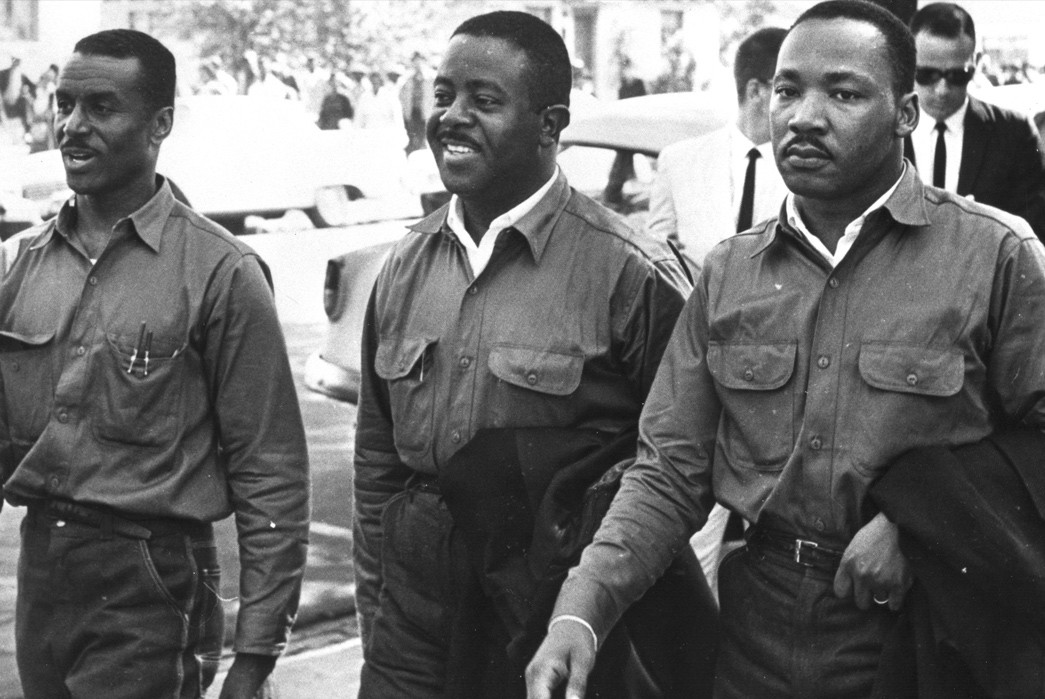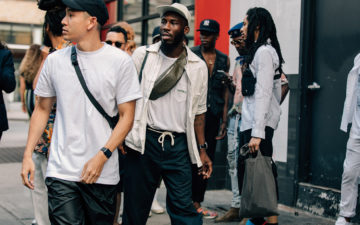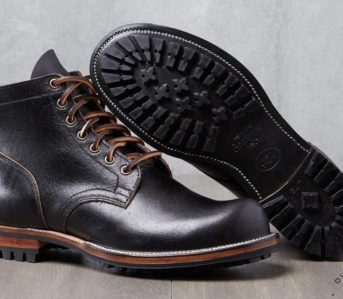Since practically its inception, denim has had a role in institutional racism in the United States. As we mentioned a few episodes ago, one of Levi’s earliest selling points was that it was “the only brand made by white labor.” Well today we’re going to be talking about the other kind of labor, non-white and often non-paid, which is a very euphemistic way to say slavery, human bondage, and other forms of exploitation.
Listen on to hear about denim was forced on enslaved peoples in the American South as well as how Black Civil Rights leaders of the 1950s but ultimately accepted as a unifying source of identity in the early 1960s.
Special thanks to Miko Underwood for lending the voice of her lived experience working in denim to this episode, you can check out her brand Oak & Acorn – Only for the Rebelles launching later this month.
Listen on the embedded player above or on the following platforms:
Citations:
- DeSante, Christopher D. “Working Twice as Hard to Get Half as Far: Race, Work Ethic, and America’s Deserving Poor.” American Journal of Political Science 57, no. 2 (2013): 342-56. Accessed February 5, 2021. http://www.jstor.org/stable/23496601.
- Ford, Tanisha C. “SNCC Women, Denim, and the Politics of Dress.” The Journal of Southern History 79, no. 3 (2013): 625-58. Accessed February 5, 2021. http://www.jstor.org/stable/23795090.
- Lopez, German. “How the Voting Rights Act Transformed Black Voting Rights in the South, in One Chart.” Vox. Vox, March 6, 2015. https://www.vox.com/2015/3/6/8163229/voting-rights-act-1965.
- Mads Jakobsen. “An Introduction to the Indigo Dye Styles of Western Africa.” Heddels, 9 May 2018, www.www.heddels.com/2016/09/an-introduction-to-the-indigo-dye-styles-of-western-africa/.
- “Civil Rights Martyrs.” Southern Poverty Law Center. Accessed February 5, 2021. https://www.splcenter.org/what-we-do/civil-rights-memorial/civil-rights-martyrs.
- Lead image Martin Luther King Jr., with the Rev. Ralph Abernathy (center) and the Rev. Fred Shuttlesworth as they defied an injunction against protesting on Good Friday in 1963. Via Birmingham Public Library Archives.






